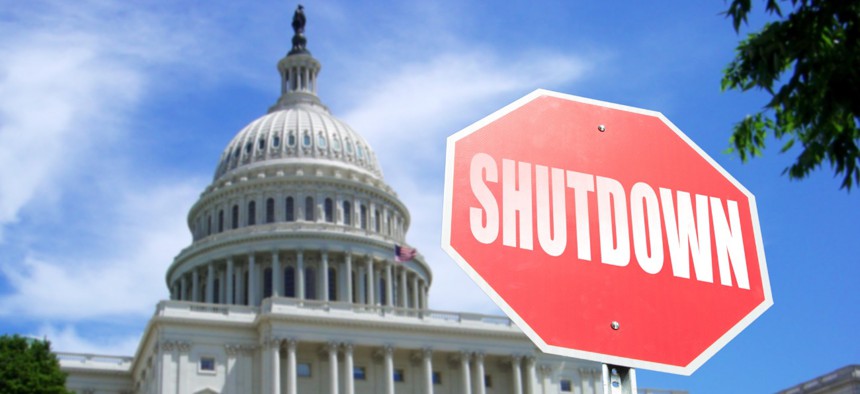
Bill Oxford / istock
OPM Finalizes Rule Ensuring Feds Can Change Insurance During Shutdowns
During the 35-day government shutdown, some workers were unable to make changes to their health benefits because the employees responsible for processing those changes were furloughed.
The Office of Personnel Management moved Thursday to finalize new regulations that will ensure federal workers can make changes to their insurance enrollment following major life events in the midst of a government shutdown.
During the 35-day partial government shutdown in 2018 and 2019, some federal employees found they were unable to change their health care enrollment through the Federal Employee Health Benefits Program to reflect such life events as getting married or the birth of a child, because the employees responsible for processing those changes were furloughed.
In response, Congress included a provision within the 2020 National Defense Authorization Act to ensure that doesn’t happen during future lapses in appropriations. That law states that federal workers responsible for administering the FEHBP or the Federal Employee Group Life Insurance Program should be deemed “essential” employees who are required to continue to report to work despite a government shutdown.
OPM filed a final rule set for publication in the Federal Register Friday formally implementing this provision. Effective Friday, FEHBP and FEGLI services will be deemed “emergency services” during lapses in appropriations, effectively making all federal employees involved in the administration of both programs as essential employees, including agency HR representatives who processes enrollment changes as a result of so-called “major life events.”
The rule also guarantees that federal employees will not be at risk of having their vision, dental or long term care insurance lapse during a government shutdown. Prior to these regulations, if a lapse in appropriations lasted more than two consecutive pay periods, federal workers would be billed directly for premiums under the Federal Employee Dental and Vision Insurance and Federal Long Term Care Insurance programs, and if they did not pay those premiums promptly, their coverage could be suspended.
The new rule would ensure that employees’ coverage would remain active throughout the course of a government shutdown, and unpaid premiums would be taken out of federal workers’ back pay after the government reopens, similar to how FEHBP premiums are currently handled following appropriations lapses.
In its filing, OPM noted that several stakeholders issued comments in favor of the rule when it was first proposed last July in the Federal Register, and the agency made no substantive changes to its original filing.







